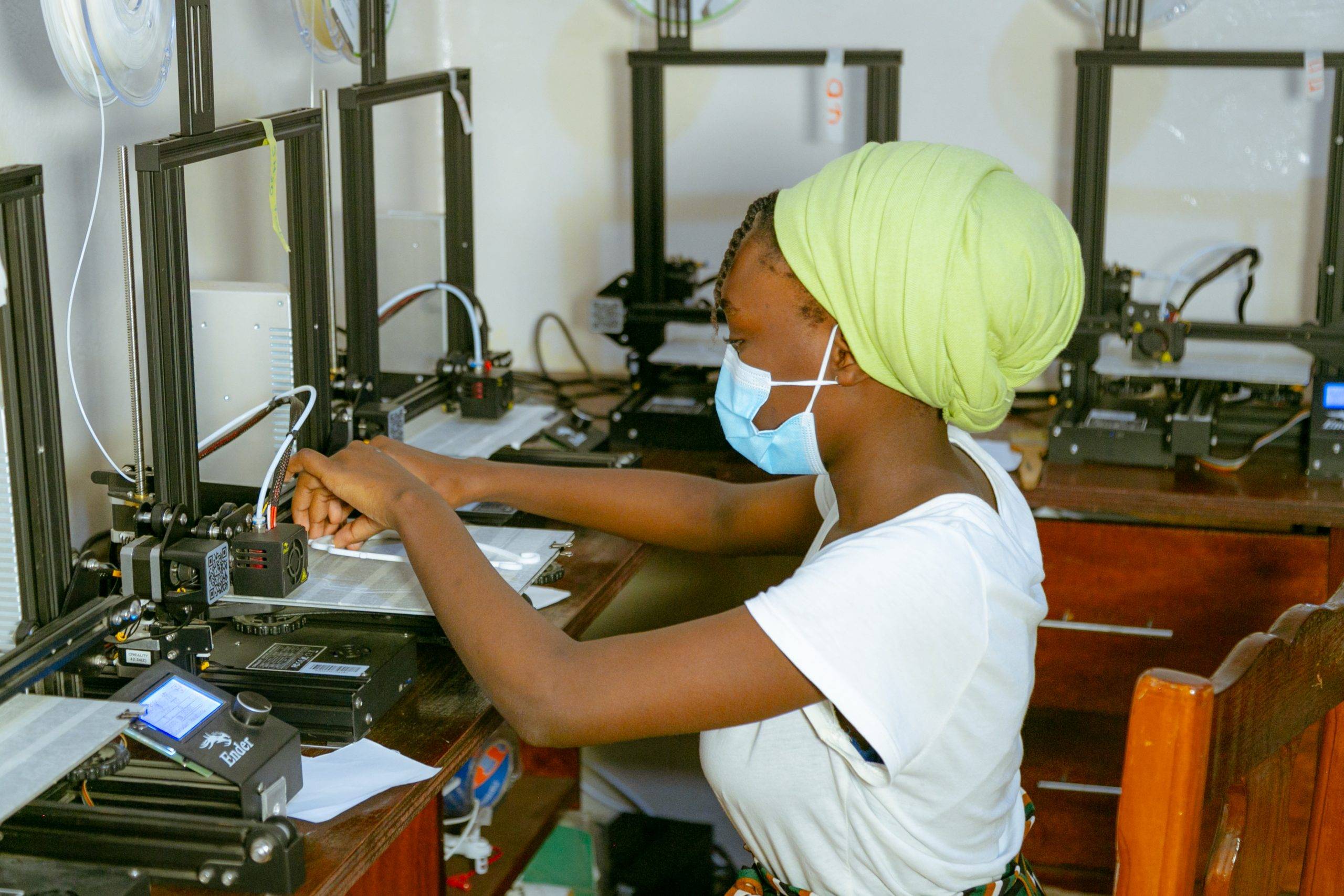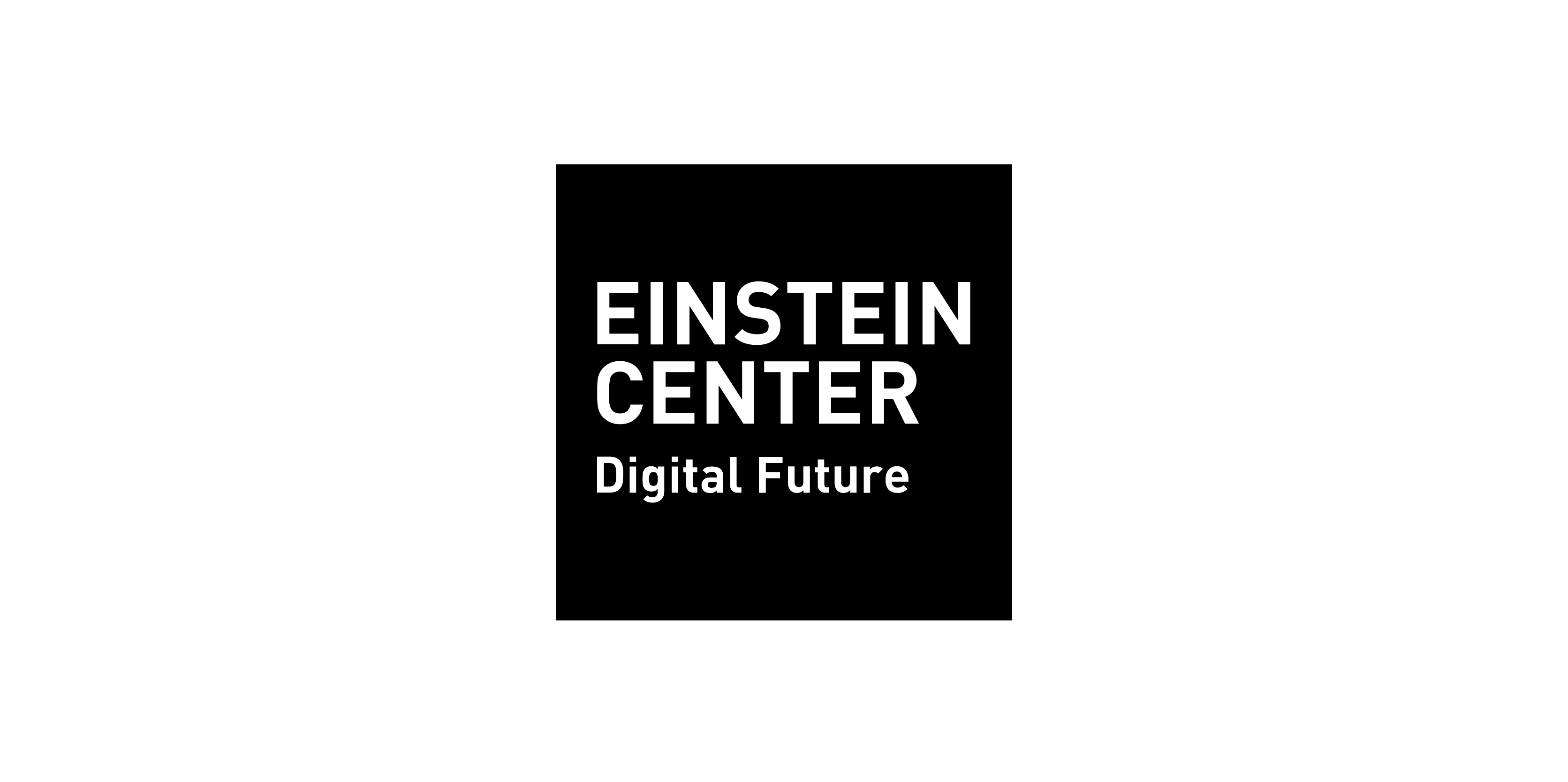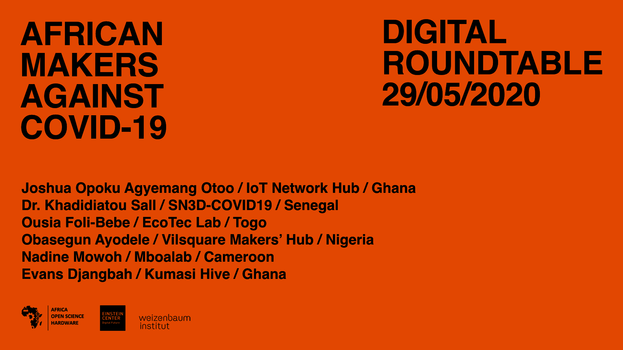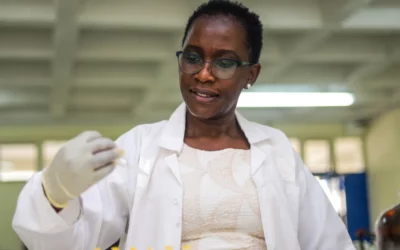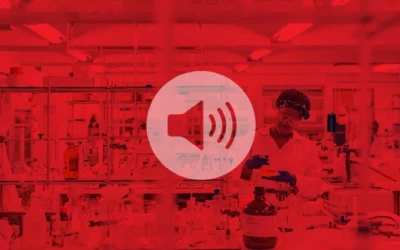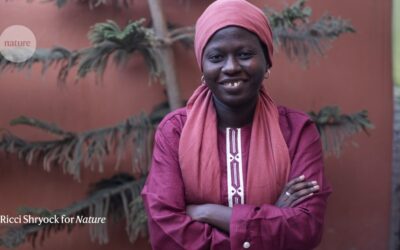Exploring Open Source Responses to a Global Crisis
In collaboration with Africa Open Science & Hardware (Gameli Adzaho) and the Weizenbaum Institute, and in dialogue with the GIZ Togo and Ghana, our professors Michelle Christensen and Florian Conradi co-organized the digital Roundtable African Makers Against COVID19.
The coronavirus pandemic has become one of the most pressing global health, security, economic and political issues of our times, requiring a coordinated multistakeholder response, including important contributions from grassroots makers. Faced with financial and infrastructural constraints, the role of homegrown solutions in Africa’s response to this crisis has become more crucial than ever. In the age of the pandemic, a number of actions enabling personal protection, sanitation and medical equipment are being developed in a Do-It-Yourself (DIY) and Do-It-Together (DIT) manner – demonstrating an open, rapid and bottom-up response to the crisis.
The roundtable brought together makers responding to the pandemic across the African continent to discuss and identify approaches, inventions, potentials and current challenges. The meeting was attended by over forty participants, including makers, students, and researchers from across the continent and beyond. The speakers included Joshua Opoku Agyemang Otoo (IoT Network Hub, Ghana), Dr. Khadidiatou Sall (SN3D-COVID19, Senegal), Ousia Foli-Bebe (EcoTec Lab, Togo), Obasegun Ayodele (Vilsquare Makers’ Hub, Nigeria), Nadine Mowoh (Mboalab, Cameroon) and Evans Djangbah, (Kumasi Hive, Ghana).
IoT Network Hub, Ghana: IoT Network Hub is a diverse community of makers who explore emerging technologies to build innovative solutions to problems in Africa. They developed the HackCoronaV initiative to help combat the coronavirus in Ghana and on the continent in general. They utilise different techniques and tools to produce amongst other things 3D printed face masks and shields, and smart touchless washing buckets with sensors. The impact of their projects goes beyond making products, to creating job opportunities for youth.
SeeSD, Senegal: SeeSD leveraged their existing community of entrepreneurs, artisans, universities and schools to form a citizen science and maker movement named SN3DCOVID19, to build PPEs in response to the crisis in Senegal. The SN3DCOVID19 project is a local volunteer-based production and supply chain, that managed to reach health facilities with 1.500 face shields, with plans to scale up to 20.000. They have created a local sourcing and decentralized production system, comprising local fab labs, startups, schools, universities and makers. In addition to face shields, they also make hand sanitizers, sanitizer dispensing machines and ventilator parts. The project has been able to crowdfund the project using fundraising sites and by building partnerships with the government (Ministry of Health), companies and startups, as well as international organisations like UNICEF.
EcoTec Lab, Togo: EcoTec Lab is a makerspace developing community solutions and educational workshops. One of their collaborations is the Molab project, which undertakes STEAM (Science, Technology, Engineering, Arts, Mathematics) educational tours to promote hands-on learning. By working with their community, the local university and the Ministry of Health in Togo, they have produced and distributed over 800 face shields during the pandemic. They are currently working on a ventilator project, for which they are currently developing the second prototype.
Vilsquare Makers’ Hub, Nigeria: Vilsquare Makers’ Hub seeks to build sustainable solutions across African communities, through empowerment, and transitioning them from analogue to digital processes. They have been prototyping and testing responses to communal challenges around Nigeria prior to the COVID-19 crisis. They therefore drew on this capability to put together educational and outreach programmes to help learners and families in Nigeria cope with the crisis. Their interventions include Volt, a DIY microscope enabling learners and teachers to explore practical science while at home during lockdown, and its accompanying education programme VoltSchool. They also organised a virtual art exhibition to create a reflective outlet as society negotiates the crisis.
Mboalab, Cameroon: Mboalab brings together researchers, scholars, educationists, policy makers and the general public to discuss, conceive and implement projects responding to the health, economic and social needs of the community, such as the coronavirus pandemic. Central to their approach is the integration of local knowledge by centring the local community, especially women, and the use of locally available and cheap materials (like African fabrics) in production. Their target users are high risk groups such as health workers. Some of the products they have made against COVID-19 include face masks, hand sanitizers and touch-less water fountains. They are currently working towards developing rapid open diagnostic kits in partnership with Just One Giant Lab (JOGL) and research institutes in Cameroon.
Kumasi Hive, Ghana: Kumasi Hive is a multi-space innovation hub that provides a platform for the rapid prototyping of ideas, supporting local innovations and startups. Through the Ghana-based African Maker Spaces Network, they are connecting with other maker spaces to create a unified response to COVID-19 (Makers Assemble!). Development of products including face shields, mask straps, respirator valves, incentive spirometers, handwashing systems, ventilators and low-cost infrared thermometer guns, are at various stages of completion. They use readily available designs that have been validated, rather than building from scratch in order to quickly respond to the crisis, and they are currently exploring how to use local resources and recyclable materials. Kumasi Hive has been able to build strong partnerships with the government (Ministry of Communications), NGOs and international organisations like GIZ and SNV to support their activities.

